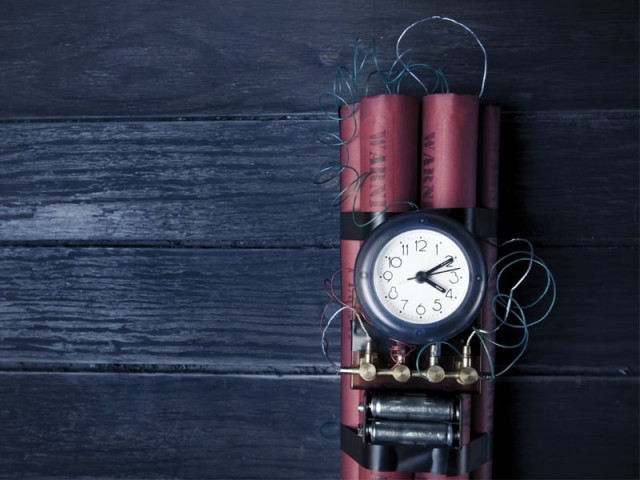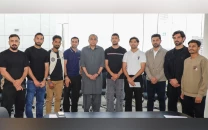‘Lack of evidence’: Three charged with aiding suicide bombers acquitted
The men had been charged with facilitating two attacks in Islamabad.

An Anti-Terrorism Court (ATC) on Tuesday acquitted three men accused of assisting with two suicide attacks in the federal capital. The attacks were carried out at the World Food Programme (WFP) office and at the Naval Headquarters entrance gate in 2009.
ATC Special Judge Rana Masood Akhtar absolved Jamshaid Khan, Noor Jahan and Rehmat Gul, all said to be members of Tehrik-e-Taliban Pakistan (TTP), from charges of helping with the two suicide blasts after the prosecution failed to provide enough evidence to prove their allegations.
The Margalla police arrested Khan on November 18, 2009 from Islamabad and recovered hand grenades and other explosives from his custody. The police said Khan confessed during investigations to have helped the Frontier Constabulary uniform-clad suicide bomber who attacked the WFP office in Islamabad on October 5, 2009.
Later on March 22, 2010, the Margalla police arrested Gul and Jahan and seized illegal weapons from them, after Khan identified them as accomplices in planning the attack on the UN office.
The prosecution had argued that the arrested men also confessed to have dropped the suicide bomber at the Naval Headquarters entrance gate in on December 2, 2009.
A junior naval officer, who was the complainant in the case, recognised the two men from the scene of the explosion when he saw them during the identification parade.
According to the police, before attacking the UN office, the three men stayed in a guest house in Pirwadhai, Rawalpindi.
On the other hand Advocate Basharatullah Khan, who defended the accused, told The Express Tribune that police had already picked up Khan before the suicide attack on the WFP office.
He said the police “forced” the accused to confess to the crimes and name the two other men as his accomplices. The lawyer said the acquitted men had retracted their confessions in court and said they were coerced by the police.
Highlighting flaws in the prosecution’s version, the defence lawyer said he argued before the court that confession statements recorded in one case could not be used as evidence in a separate criminal case.
He also argued that the police never found out the names of the two suicide bombers and the employees at the guest house in Rawalpindi could not recognise the accused during the identification parade.
He had also brought up in court that all eyewitnesses injured at Naval Headquarters including the complainant had, in their initial statements, said they saw one man cross the road towards them from the bus stop and blowing himself up. However, the complainant later said he found three men standing at the bus stop.
Published in The Express Tribune, September 19th, 2012.



1733130350-0/Untitled-design-(76)1733130350-0-208x130.webp)















COMMENTS
Comments are moderated and generally will be posted if they are on-topic and not abusive.
For more information, please see our Comments FAQ